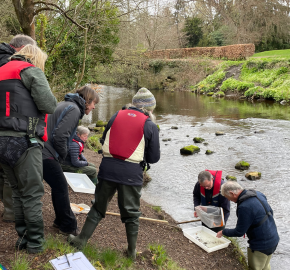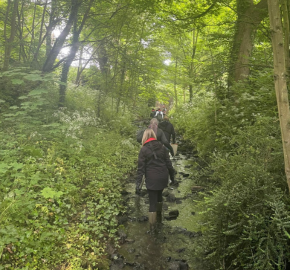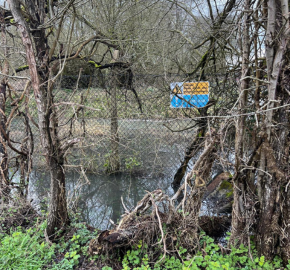Citizen Scientists we need you!
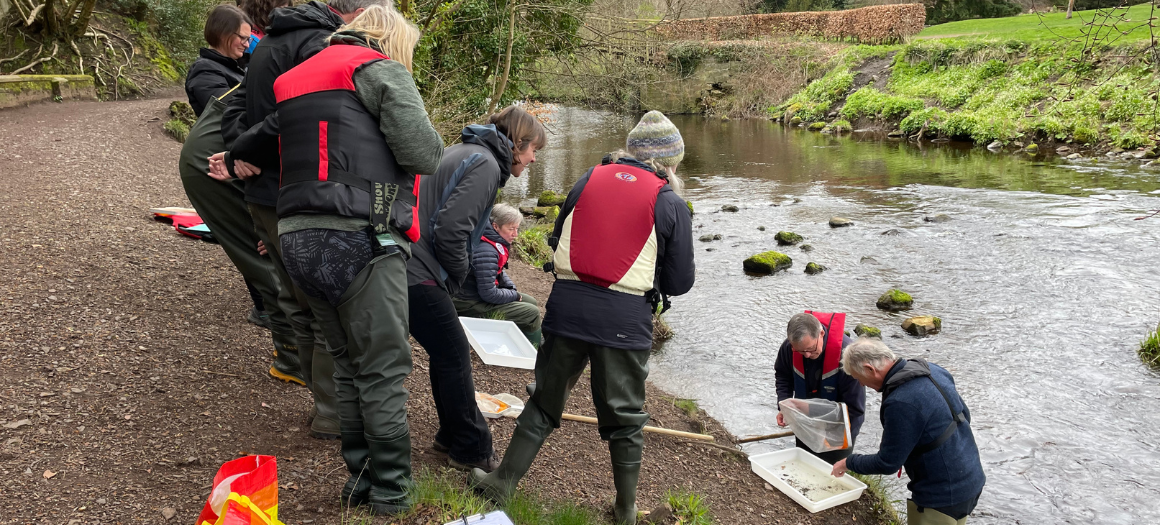
Do you regularly spend time on a UK river? Or are you part of a volunteer group? If so, WildFish are looking for new hubs to participate in the highest level of invertebrate citizen science monitoring available. If you want to collect scientifically robust data and campaign for water quality with policy support from WildFish, SmartRivers could be for you. Read on to find out how.
With the help of local volunteer groups, SmartRivers is bridging the monitoring gap left by the Environment Agency and using the data to safeguard and restore UK rivers.
Invertebrates – a river blood test
Macroinvertebrates are small animals without a backbone, which can be seen with the naked eye. They are an important food source for other river wildlife such as fish and birds.
Invertebrates live in the water for months, if not years, and are subjected to pollution over time. Invertebrate species are quite particular about the water quality conditions they need to thrive. Because of this, they all have different tolerances to pollution. Looking at which invertebrate species are present, along with their numbers, indicates what water quality stressors are present at a site, and the impact this stress has on the system. Looking at these communities of invertebrates within a river gives a representative picture of long-term water quality impacts. This contrasts with spot water samples taken for chemical testing, which only represent river conditions at a single moment.
The importance of SmartRivers data
Rivers continue to decline:
- UK Atlantic salmon populations were recently listed as endangered on the IUCN Red List.
- Raw sewage was discharged for more than 3.6 million hours into rivers and seas in 2023.
- 700 million litres of water are unsustainably removed from rivers by water companies every day.
- Not a single river in England has received a clean bill of health for chemical contamination.
The data collected through SmartRivers is working to reverse the decline in river health and has many uses:
1. Providing an invaluable benchmark on river invertebrate biodiversity so future changes can be monitored.
Every season of data collected provides an in-depth profile of what invertebrates were present in your river at that time. Without SmartRivers, this would not exist. Biological recording is key to understanding the natural world regarding pressures such as climate change.
2. Pinpointing potential pressures impacting sites, allowing discussions with other stakeholders and regulators on what action is needed to address them.
An example is the work we have done with our Save Windermere hub. The SmartRivers sample sites are positioned above and below water company assets such as wastewater treatment works (WwTW) and combined sewer overflows (CSOs). The data from the first full year shows the invertebrate community are suffering with up to an 88% decline in the abundance of pollution-sensitive riverfly species on some becks. One survey below a sewage works yielded just two individuals of a single species of leech.
3. Assessing the impact of restoration work by pre and post-monitoring.
Lots of in-river projects are taking place, but few have the funding to obtain detailed monitoring of their biological impact. SmartRivers provides this.
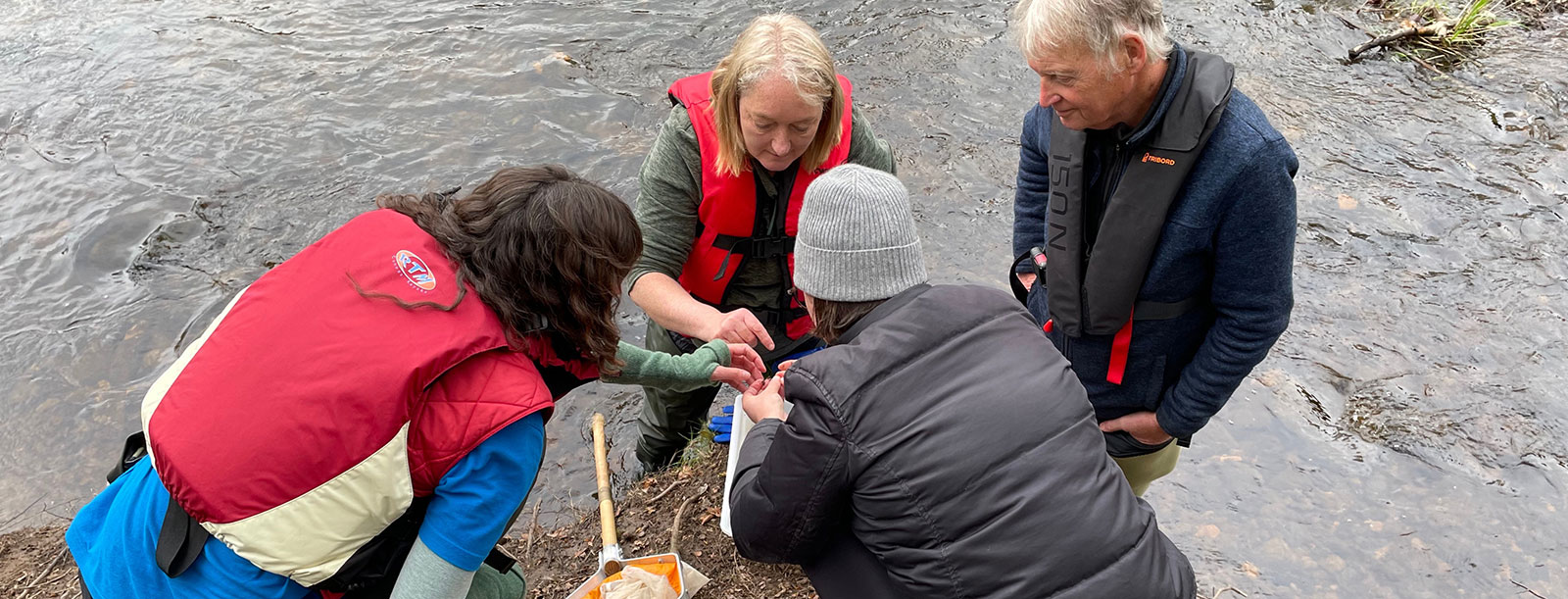
SmartRivers volunteers learning to conduct a kick-sweep sample.
What does being part of SmartRivers look like?
Invertebrates are collected from rivers in spring and autumn using the industry standard three-minute kick sweep sample and one-minute hand search. They are preserved and identified to species level, where possible, under a microscope. Local groups choose five suitable sample sites depending on their objectives.
For the first two seasons, WildFish have the samples collected and analysed by professionals to provide a ‘benchmark survey’ whilst groups receive their training. The first day is in sampling technique, where you learn how to take the perfect ‘kick-sweep’ sample. On the second day you will learn invertebrate identification skills, tailored to the invertebrates expected in your river.
Once trained, you will sample your river twice a year (usually in May and September) at the designated sample sites. Groups can identify the invertebrates themselves, continue to get their samples professionally analysed, or do a combination of the two.
Volunteers receive reports twice a year on their results. They also get the opportunity to take their data further and drive action with access to the expertise of the policy team at WildFish.
Without appropriate data we cannot start to reverse the national decline. As lovers of waterways and wildlife, we all have a responsibility to protect them.
SmartRivers data is helping us understand river health so that our watery places can be cleaner, healthier, and safer for everyone.
“SmartRivers data is the currency local groups like us can use that regulators will actually take notice of. It’s our best hope to drive improvements for our river.”
David Holroyd
Volunteer lead for Wiltshire Fishery Association
How to sign up
If you would like further details and want to join over 100 rivers already signed up, drop our team a line at smartrivers@wildfish.org.


